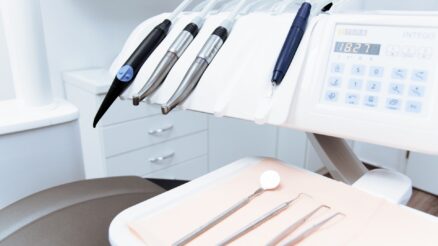Despite their toughness, teeth can chip, crack, fracture, or even break in certain circumstances. The majority of dental injuries result from chips, cracks, and fractures. The damage could cause constant discomfort and put your teeth to infections. But, even if you’ve sustained injuries to your teeth, you can have them repaired and the smile you’ve always wanted. This article outlines some of the common dental procedures for tooth repair.
Common Procedures for Fixing Teeth
Seven procedures general dentists practice regularly. If a patient suffers from any dental issue, one of the seven procedures will likely solve the problem.
1. Braces
Braces, which are typically made of plastic, ceramic, and steel, can be utilized in order to align teeth and help treat underbites or overbites and other tooth and jaw issues. Braces function by pushing teeth into the position they want to be in. Numerous celebrities used braces to straighten their teeth, proving how well-liked and effective they were.
2. Veneers
Veneers are thin-looking coverings placed on the sides of teeth to conceal imperfections and provide them with a natural look. They are natural-looking and are utilized to correct numerous dental problems, such as chips and crooked or damaged teeth. Porcelain veneers are the most sought-after since they give the most natural-looking outcomes. The veneer is fixed to the front of the tooth in the procedure and changes its appearance.
3. Implants and Bridges
Implants and bridges fill in the gaps due to missing or damaged teeth. They also stop other teeth within the mouth from shifting. A dental implant can replace an unintentionally lost tooth. Implants are surgically-placed metal posts “implanted” in the jaw. The post is then used as an anchor to allow an artificial tooth to attach. Full dental implants can also help ensure the stability of the bridge.
4. Dental Bonding
This is a procedure for discolored, damaged chips, broken, cracked, or decaying teeth. The dentist will apply a substance with the same color as tooth enamel in the procedure. The dentist begins by roughening the damaged tooth before applying this composite. The dentist will then mold the tooth and smooth it until it blends with the rest of the teeth. The composite material can also be hardened by ultraviolet light.
5. Crowns
They are the most well-known dental restoration procedures. For instance, a crown is a good option if you have a damaged tooth to the point of breaking or are suffering from pain that persists after eating or drinking. Crowns, commonly referred to as caps, are dental restorations that protect and safeguard damaged teeth. Furthermore, prosthetics aid in improving the aesthetics of teeth. The primary distinction between the crown and the veneers is that crowns cover the whole tooth, and veneers only cover the front of the tooth.
6. Repairs and Fillings
If you’re suffering from tooth decay, the common procedure is to clean the affected area and attempt to repair the teeth. However, your dentist must first determine the severity of the decay. Cavity-detecting dyes and fluorescent decay detection aids, and x-rays are commonly employed in the process of evaluating. If you need a schedule for a filling, no matter the reason, speak to your dentist about the alternatives before choosing the most appropriate procedure to suit your needs and the budget you have set. Check out dental radiographs Dunnville for more details.
7. Root Canal
When the inner tooth structure has been badly injured, root canal treatment may be utilized to preserve tooth structure and the tooth root. It’s also a great treatment for the discomfort caused by damaged or inflamed teeth caused by fractures, chips, or decay. The decaying material and the injured nerves are removed during the procedure. The tooth can then be fitted with a seal to prevent further injuries or infections. Also, a crown may be put in to protect the tooth. In case you lose a tooth, you can check out tooth extractions Dunnville.
Final Thoughts
If you’re experiencing a problem regarding your teeth and you are concerned about your teeth, it is recommended to see an experienced dentist right away to prevent any further injury or damage. Visit your dentist immediately to make an appointment if your tooth is damaged, chipped, cracked, or fractured tooth, one that is decaying, damaged, broken, sensitive or painful tooth.


